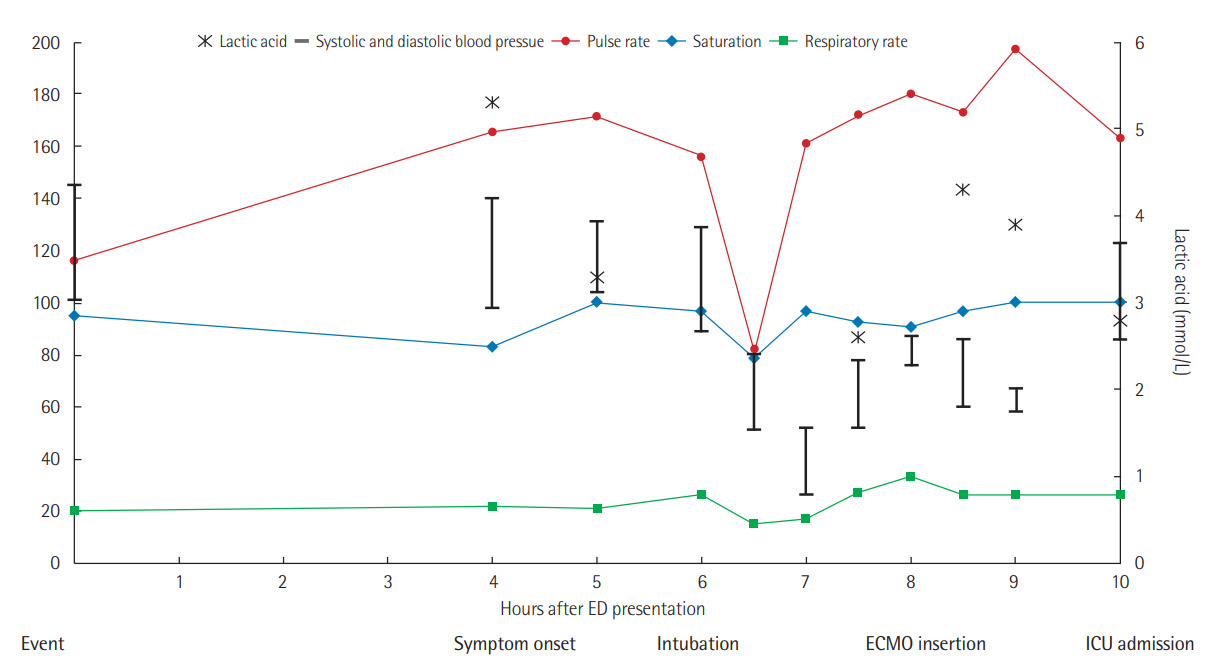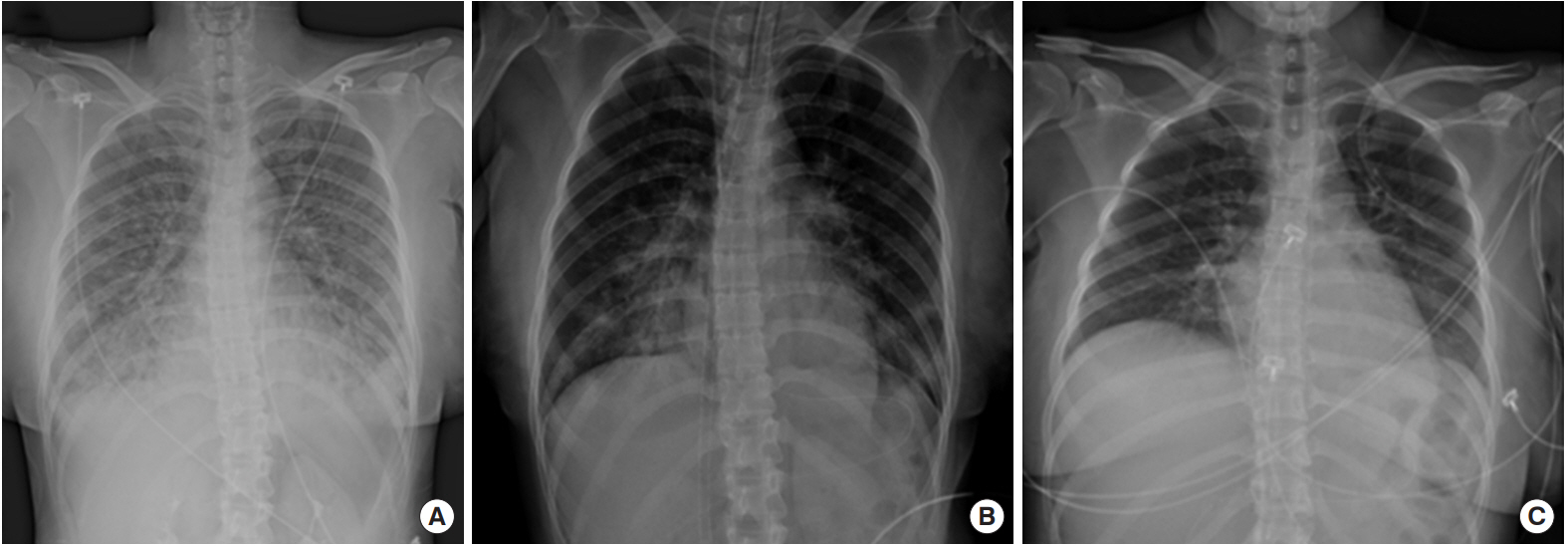Acute Crit Care.
2019 May;34(2):165-169. 10.4266/acc.2017.00045.
Acute fulminant myocarditis following influenza vaccination requiring extracorporeal membrane oxygenation
- Affiliations
-
- 1Department of Emergency Medicine, Asan Medical Center, University of Ulsan College of Medicine, Seoul, Korea. wonpia73@naver.com
- KMID: 2449372
- DOI: http://doi.org/10.4266/acc.2017.00045
Abstract
- The inactivated influenza vaccination is generally safe with mostly mild side effects. We report a rare but fatal adverse event following influenza vaccination. A previously healthy 27-year-old woman who received the influenza vaccination 3 days before presenting to the emergency department had rapidly aggravating dyspnea and mental deterioration. She was diagnosed as having acute fulminant myocarditis with refractory cardiogenic shock, which was successfully managed with veno-arterial extracorporeal membrane oxygenation. The cardiac function of the patient recovered in 3 weeks.
Keyword
MeSH Terms
Figure
Reference
-
1. Korea Centers for Disease Control and Prevention. Korea Centers for Disease Control and Prevention (KCDC) web [Internet]. Cheongju: Korea Centers for Disease Control and Prevention;2017. [cited 2017 Oct 19]. Available from: http://cdc.go.kr/CDC/mobile/intro/CdcKrIntro0505.jsp?menuIds=HOME001-MNU1154-MNU2557-MNU2487&cid=76303.2. Nichol KL, Margolis KL, Lind A, Murdoch M, Mc-Fadden R, Hauge M, et al. Side effects associated with influenza vaccination in healthy working adults: a randomized, placebocontrolled trial. Arch Intern Med. 1996; 156:1546–50.
Article3. de Meester A, Luwaert R, Chaudron JM. Symptomatic pericarditis after influenza vaccination: report of two cases. Chest. 2000; 117:1803–5.4. Cheng MP, Kozoriz MG, Ahmadi AA, Kelsall J, Paquette K, Onrot JM. Post-vaccination myositis and myocarditis in a previously healthy male. Allergy Asthma Clin Immunol. 2016; 12:6.
Article5. Singh K, Marinelli T, Horowitz JD. Takotsubo cardiomyopathy after anti-influenza vaccination: catecholaminergic effects of immune system. Am J Emerg Med. 2013; 31:1627. e1-4.
Article6. Streifler JJ, Dux S, Garty M, Rosenfeld JB. Recurrent pericarditis: a rare complication of influenza vaccination. Br Med J (Clin Res Ed). 1981; 283:526–7.
Article7. Rosenberg M, Sparks R, McMahon A, Iskander J, Campbell JD, Edwards KM. Serious adverse events rarely reported after trivalent inactivated influenza vaccine (TIV) in children 6-23 months of age. Vaccine. 2009; 27:4278–83.
Article8. Lanza GA, Barone L, Scalone G, Pitocco D, Sgueglia GA, Mollo R, et al. Inflammation-related effects of adjuvant influenza A vaccination on platelet activation and cardiac autonomic function. J Intern Med. 2011; 269:118–25.
Article9. Engler RJ, Nelson MR, Collins LC Jr, Spooner C, Hemann BA, Gibbs BT, et al. A prospective study of the incidence of myocarditis/pericarditis and new onset cardiac symptoms following smallpox and influenza vaccination. PLoS One. 2015; 10:e0118283.
Article
- Full Text Links
- Actions
-
Cited
- CITED
-
- Close
- Share
- Similar articles
-
- Percutaneous Extracorporeal Membrane Oxygenation (ECMO) for Acute Fulminant Myocarditis
- Two cases of acute fulminant myocarditis supported by extracorporeal membrane oxygenation
- Life-Threatening Acute Fulminant Myocarditis Following a Coffee Diet Program
- A Case of Reversible Very Low Voltage Electrocardiogram in Fulminant Myocarditis
- Successfully Treated Acute Fulminant Myocarditis Induced by Ulcerative Colitis with Extracorporeal Life Support and Infliximab




